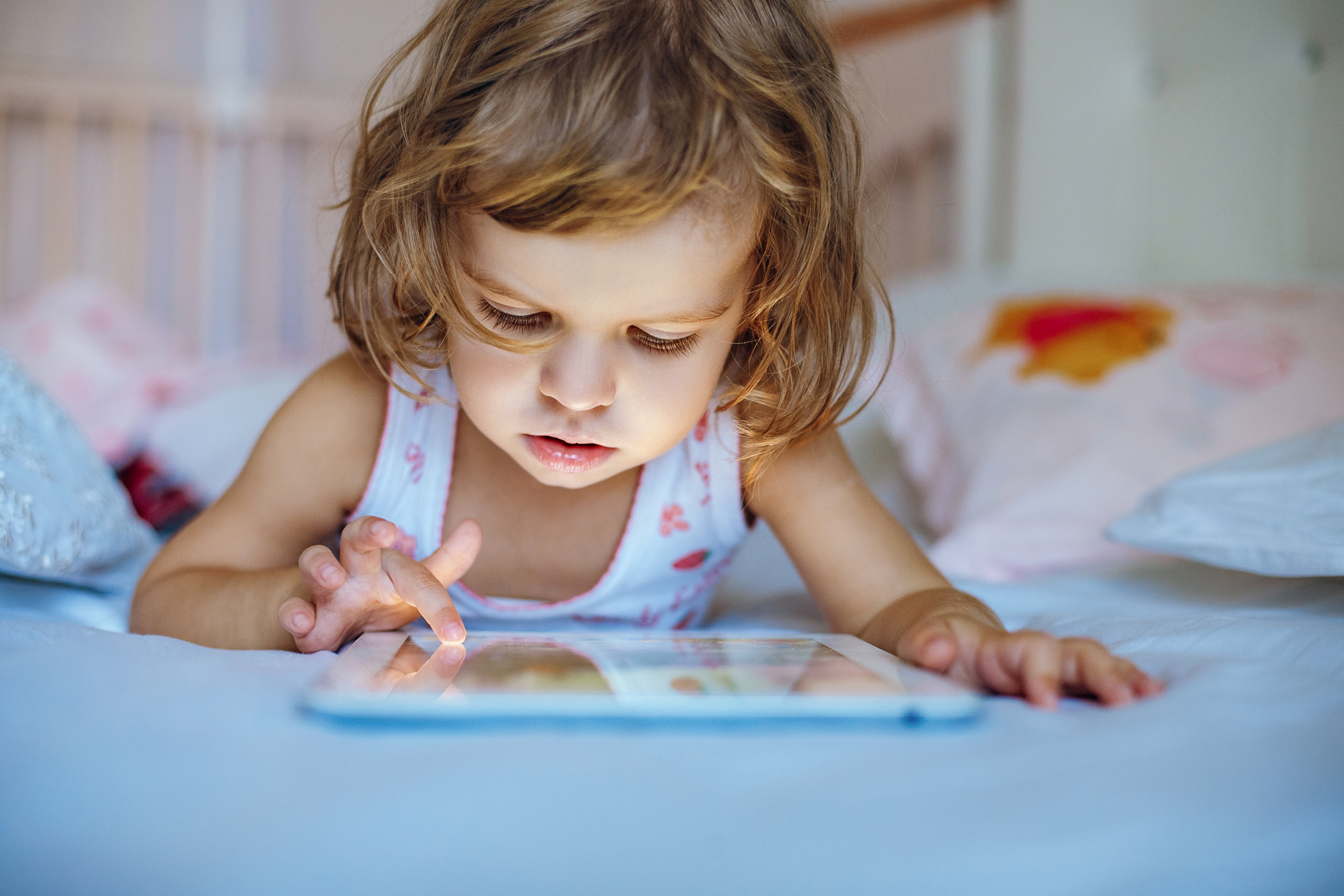MRI Study Associates Screen Time Exposure In Children To Lower Brain Development
Tags: News

According to a new study published in the journal JAMA Pediatrics, too much screen time for young children could be linked to slower brain development. The study’s lead author Dr. John Hutton, a pediatrician and clinical researcher at Cincinnati Children’s Hospital, says that this is the first known study to examine how screen time affects the actual structure of a child’s growing brain.
In the study, Hutton and his team scanned the brains of children in the sensitive age group between 3 and five years old. They found that the white matter in the brain was less developed in children who spent more time in front of screens. White matter is important to thought processing and the development of speech and literacy.
Hutton says that the first five years of brain development is extremely important.
“This is important because the brain is developing the most rapidly in the first five years. That’s when brains are very plastic and soaking up everything, forming these strong connections that last for life,” Hutton told CNN.
https://www.facebook.com/robinroberts/videos/459497324771657
Hutton said that children who spent more time in front of screens spend less time interacting with actual people, which is an essential part of creating the pathways in the brain that will make it easier to develop social and cognitive skills.
“It’s known that kids that use more screen time tend to grow up in families that use more screen time. Kids who report five hours of screen time could have parents who use 10 hours of screen time. Put that together and there’s almost no time for them to interact with each other,” Hutton said.
Hutton explained that it is not the screens themselves that are causing the damage, but rather, that the screens are acting as a stand-in or replacement for vital human interaction.
“It’s not that the screen time damaged the white matter. Perhaps screen time got in the way of other experiences that could have helped the children reinforce these brain networks more strongly,” he added.
Over 5000 people have downloaded our free ebook “Growth Hacking Tips And Rituals For Optimal Living” CLICK HERE to get your free copy now
Screen use has become ubiquitous in our society, even among children. Hutton’s research suggests that about 90% of the children in his studies have used screens by the time they turned one year old, with some using them as young as 2 or 3 months after birth.
In the most recent study, the children were given an MRI which showed the different levels of white matter development among children that used screens for different lengths of time. Other research has also found lower rates of academic achievement in children who were exposed to screens more often.
IMAGE CREDIT: zamuruev
Leave Comment: